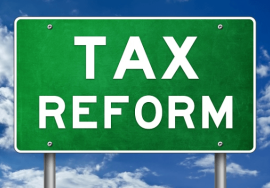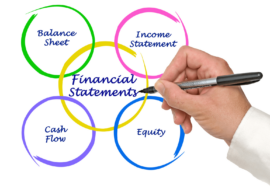
Economic Indicators and Their Impact on Business in Nigeria
The Nigerian business environment is constantly influenced by key economic indicators that shape market trends, business performance, and investment decisions. For Small and Medium Enterprises (SMEs) and large corporations alike, understanding these economic indicators is crucial for strategic planning, risk management, and sustainable growth.
At Cruz Wise Consulting, we help businesses navigate Nigeria’s dynamic economic landscape by providing expert insights, data-driven strategies, and financial advisory services. By monitoring inflation rates, exchange rates, GDP growth, interest rates, and government policies, we assist businesses in making informed decisions and adapting to economic changes effectively.
1. Inflation Rate and Business Cost Management
What is Inflation?
Inflation measures the rate at which the prices of goods and services rise over time. In Nigeria, inflation is often driven by factors such as exchange rate volatility, supply chain disruptions, and government policies.
How Inflation Affects Businesses
✔ Increased cost of raw materials and production
✔ Higher operational expenses (utilities, logistics, wages)
✔ Reduced consumer purchasing power, leading to lower sales
✔ Need for frequent price adjustments, impacting profit margins
How Cruz Wise Consulting Helps:
What is the Exchange Rate?
We provide financial advisory and cost optimization strategies to help businesses manage inflationary pressures. Through budget planning, price modeling, and expense control measures, we help companies maintain profitability even in high-inflation periods.
2. Exchange Rate Fluctuations and Foreign Trade
The exchange rate determines the value of the Nigerian Naira (NGN) relative to foreign currencies, especially the US Dollar (USD). Nigeria’s economy is highly dependent on imports, making businesses vulnerable to exchange rate fluctuations.
How Exchange Rate Impacts Businesses
✔ Higher costs for imported goods and raw materials
✔ Increased cost of international transactions and foreign debt servicing
✔ Reduced investor confidence due to currency instability
✔ Competitive advantage for export-oriented businesses
3. GDP Growth and Market Opportunities
What is GDP?
Gross Domestic Product (GDP) measures the total economic output of a country. A growing GDP indicates economic expansion, while a declining GDP signals a slowdown or recession.
How GDP Affects Businesses
✔ Higher GDP growth leads to increased business opportunities and consumer spending
✔ Low GDP growth results in reduced demand, affecting sales and profitability
✔ Business confidence and investment decisions are influenced by GDP trends
4. Interest Rates and Business Financing
What are Interest Rates?
Interest rates determine the cost of borrowing money. The Central Bank of Nigeria (CBN) adjusts interest rates to control inflation and economic growth.
How Interest Rates Impact Businesses
✔ High-interest rates increase the cost of business loans and capital financing
✔ Low-interest rates encourage business expansion and investment
✔ Affects consumer spending patterns, especially for credit-dependent purchases








